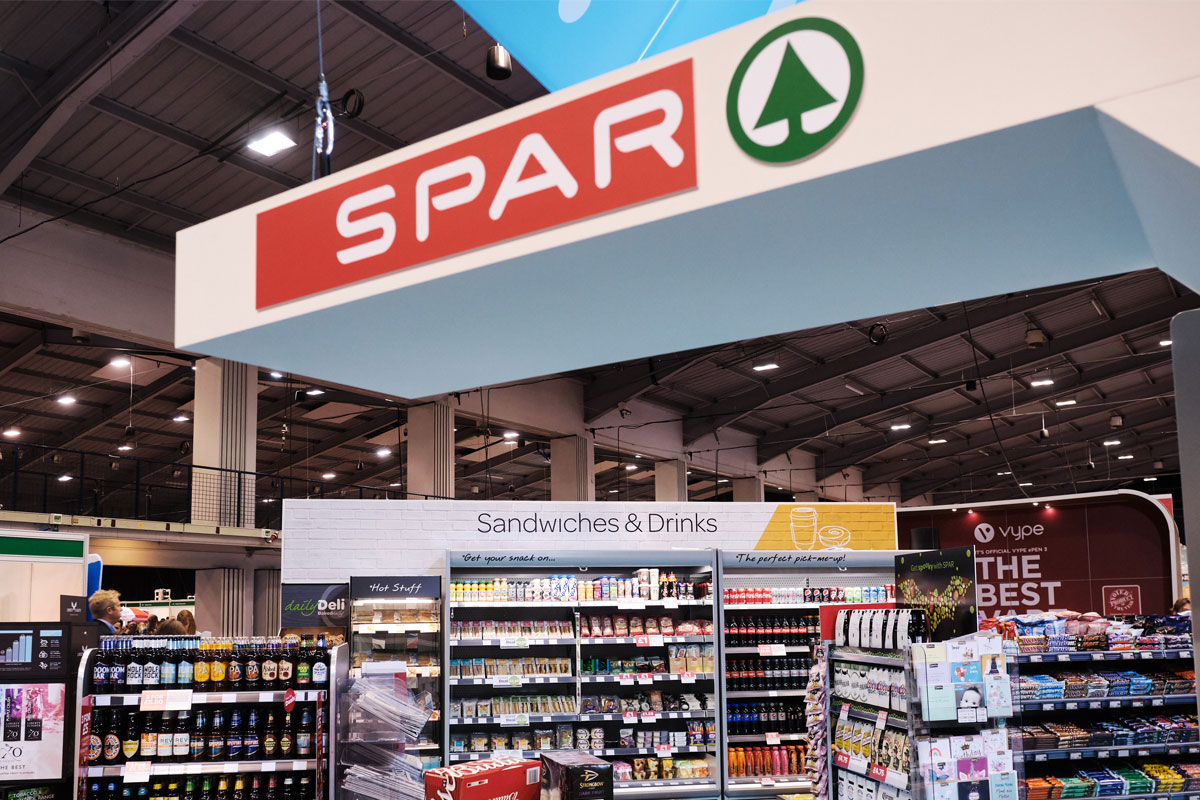Spar International has revealed the lessons from its stores in 48 countries around the world that are helping to drive the grocery retailer’s success.
The chain’s managing director, Tobias Wasmuht, and its head of design, Gary Harris, discussed its flagship stores with Global Convenience Store Focus last week.
Wasmuht said Spar “evolves” by working with independent retailers to develop new ideas before adapting them for other markets.
The major successes currently being rolled out across its estate broadly fall into the categories of ‘foodvenience’, technology, sustainability and health.
While acknowledging the impact of the pandemic in the short term on some of these aspects, Wasmuht said these would return stronger than ever as the crisis recedes. “The fundamental consumer trend long-term is importance of health, nutrition and how fragile planet earth is and the role individuals can have,” he said.
“The organic sales on own brand are now outperforming conventional own brand, especially in key west-European markets.”
In health and sustainability, the biggest ongoing development is the Spar Natural brand following Spar Natural branded store launches in Spain, Denmark and other territories, most driven by independent franchise owners.
A branded in-store concession was developed based on a new Spar Natural own-label range, with 15 of these lines introduced into the UK market in February.
Harris revealed that further elements were on the way this summer, but did not specify for which markets.
Sainsbury’s stocking Spar own-brand in Northern Ireland
“More lines are being added to the range as we speak. We also have a bulk plastic-free dispensing solution that’s full ‘plug and play’. It’s something we’re developing now and will be launching in May/June of this year,” he said, adding that similar trials of self-serve ambient groceries had been “a great success”, and there are plans to expand into household lines with suppliers such as Ecover.
Spar Natural has also been adapted to meet demand for specialist dietary needs, such as gluten- or dairy-free. “At its core, it has great, well-trained staff who can act as consultants if customers need advice,” added Harris.
In ‘foodvenience’, in-store seating is changing in Spar stores following
work in China and Ireland. The managing director said up to 25% of its stores have seated areas “even in city-centre locations, where space is at a premium”.
The company is winning greater spend by diversifying seating to meet consumer needs such as higher chairs and tables for on the go, and comfier seating for social occasions.
Spar reveals plans to help retailers keep Covid custom
Toasted sandwiches are the global trend of the day following successes in the Netherlands, which he suggested had similar potential sales growth as the now-ubiquitous panini.
Technology is also moving “east to west” in Spar stores, based on the brand’s experience in the more technologically advanced retail standards in cities like Hong Kong, Bangkok and Shanghai.
This includes greater use of QR codes, self-checkouts and electronic shelf-edge labels (ESLs) that can be updated by staff using a mobile phone.
Though previously too expensive for many UK stores, the company suggested the cost had reduced to an affordable level. Refrigerated pick-up lockers may also be an option in larger stores.





Comments
This article doesn't have any comments yet, be the first!